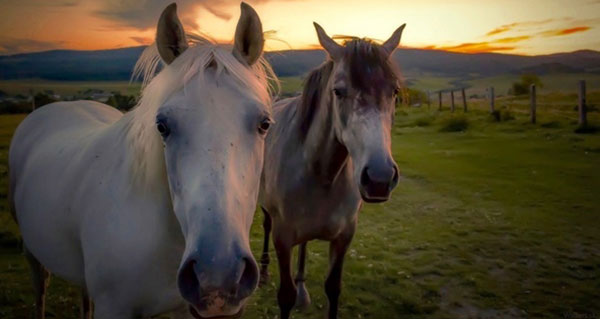Choke is a relatively common condition in horses. It occurs when an item, often a ball of feed, gets caught in the oesophagus when they are eating. It is usually fairly acute in onset.
Symptoms
The symptoms of a horse with choke vary but they usually have froth and feed running from their nostrils. They may also demonstrate gagging, coughing, and colic like symptoms such as rolling or even throwing themselves on the ground.
Treatment for choke
Fortunately some episodes of choke will resolve spontaneously, so the first step is to remove the horses access to food and keep them in a safe area where they cannot hurt themselves or their handler for about 15 minutes.
Cases that do not resolve spontaneously should be examined by a veterinarian. The veterinarian is likely to use a combination of muscle relaxants and sedatives then may pass a stomach tube through the nose into the oesophagus and attempt to flush the obstruction through using water.
In most cases this treatment is successful, however on occasions the veterinarian may choose to stop trying to flush out a large impaction and return later to flush further.
If flushing is unsuccessful an endoscope may be recommended to look and see what is causing the obstruction.
I recall a particularly difficult obstruction where a carrot become lodged in the oesophagus and the horse required a night in hospital on intravenous fluids prior to being able to dislodge the obstruction.
Prognosis
Fortunately most choke cases are resolved relatively easily and without complication. On occasions complications such as pneumonia (if the horse inhales the oesophageal fluid), or scarring and narrowing of the oesophagus at the site of obstruction can occur. It is possible that over exuberant manipulation of the tube in the oesophagus or pressure of the obstruction could lead to an oesophageal tear but this is highly unlikely when the horse is appropriately sedated and the procedure carried out by an experienced veterinarian.
If repeat episodes of choke occur your veterinarian may recommend endoscopic examination of the oesophagus or other testing to check for strictures or masses that may predipose choke.
For further information please contact us on 4362 1644

